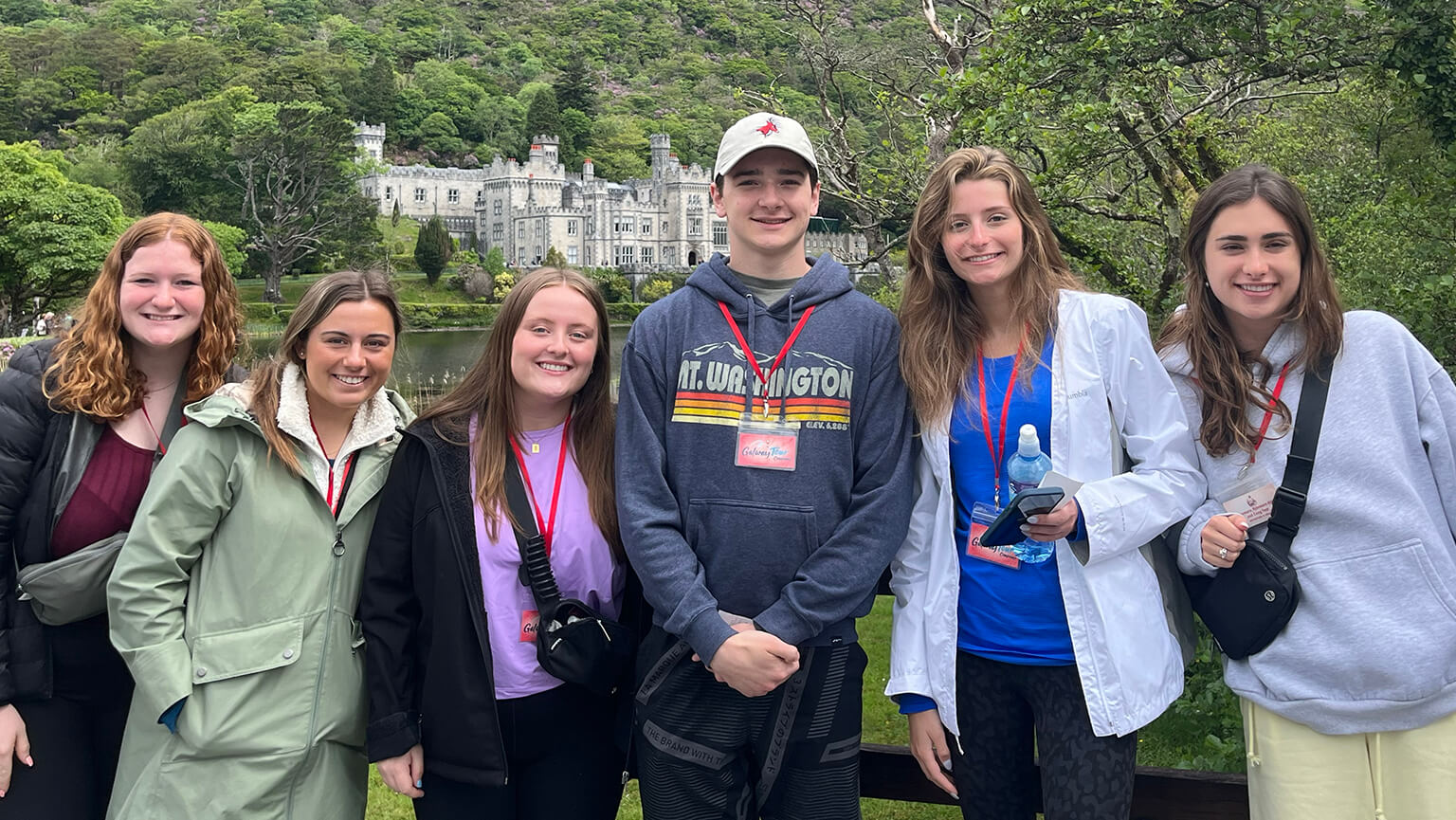Nursing, public health, and social work majors traveled to the University of Galway in Ireland for the first faculty-led study abroad course in healthcare delivery systems.
Sally Gerard, DNP, RN, CDCES, has taught “Healthcare Delivery Systems” to incoming second degree nursing students at Fairfield University for the last eight summers. But this year’s course was anything but familiar to the professor and associate dean of graduate studies in the Marion Peckham Egan School of Nursing and Health Studies. You see, Dr. Gerard “took the show on the road” for the first time this summer, offering the intensive weeklong course in Galway, Ireland.
Thirteen students from nursing, public health, and social work traveled with Dr. Gerard for the course, which examines historical, economic, political, and technological issues in healthcare delivery, both within and outside of the United States. Nursing major Kristen Bilich ’27 believes Galway provided the ideal location for comparing healthcare delivery models.
“Since we were in Ireland, we were able to compare their healthcare system to ours,” said Bilich. “We heard lectures from healthcare professors at the University of Galway and toured their university hospital. It was really great to talk with nurses and other healthcare staff and hear about their experiences.”
Classmate and fellow nursing major Finnegan Bonner-Gerber ’27 agreed. “One of the highlights of the trip was touring a hospital in Ireland,” he said. “It was incredibly interesting to see how hospitals are operated differently there.”
The course, which is required of all Egan School undergraduates, does not typically include a specific research focus; however, this summer’s study abroad version did. It examined stroke prevention within the broader context of healthcare delivery systems. Associate Professor Cynthia Bautista, PhD, APRN, FNCS, FCNS, a national leader in neuroscience, provided expertise and additional support for the program.
The emphasis on stroke and its risk factors was not only relevant — stroke is a leading cause of death and disability in the United States and in Ireland — but also timely, as the Health Services Executive in Ireland recently published its national framework for stroke prevention. Moreover, as Dr. Gerard explained, “stroke intersects with all facets of healthcare — from acute care to homecare, from prevention to rehabilitation and counseling,” making it pertinent to all nursing and health studies majors enrolled the course.
Students were divided into four groups; each researched a different risk factor associated with stroke. At the end of the week, they compiled their research and insights into multimodal projects, which they presented to the class. Dr. Gerard, who had high expectations going into the course, said the approach “worked even better than expected.”
Before traveling abroad, students completed preliminary coursework online. Their advance study provided greater opportunity for field research and experiences when the course transitioned to the University of Galway for a week. This feature was the highlight of the study abroad course for Bonner-Gerber.
“I was pleasantly surprised that most of our learning took place outside the classroom,” he said. “Immersing yourself in the culture and subject matter you are learning is something you cannot experience in the classroom. It provides a learning environment that gives you a deeper understanding and appreciation of the material.”
The line between coursework and tourism is often blurred during study abroad experiences because casual encounters and conversations can easily become learning opportunities. Case in point: Bilich’s favorite moment abroad was when she and her classmates talked to a waiter at a restaurant for a few hours. The conversation initially centered on life in Galway but soon turned to healthcare, a topic on which the waiter was happy to share his experiences and perspective.
Moments like the one at the restaurant make for rich learning experiences, allowing students to connect course material to real-life examples, which ultimately increases retention of knowledge. Bilich and Bonner-Gerber deeply appreciate their study abroad course in healthcare delivery systems because it provided ample opportunities for such connections.




